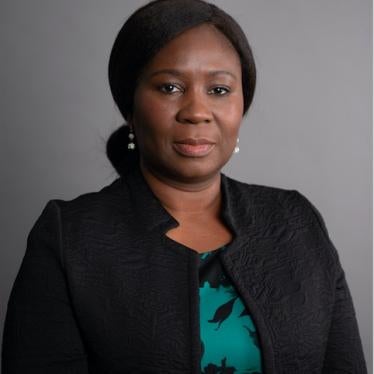After more than two years, Amina Ali, one of the 276 schoolgirls Boko Haram fighters abducted from a Chibok school in a 2014 attack that sparked lasting international outrage, was found this week. She was reportedly identified by a member of a civilian vigilante group assisting Nigerian soldiers in the fight against Boko Haram.
Amina’s abduction with 275 other classmates from Government Secondary School, Chibok, Borno state, became the symbol of Boko Haram’s capture of at least 2000 women and children over the course of the seven-year long insurgency in northeast Nigeria sparking international outrage as voiced though the #BringBackOurGirls hashtag, started by local activists. Since their abduction on April 14, 2014, only 57 of the girls had managed to escape at various stages of being captured; 219 remained hostages.
Until three days ago.
Just as Boko Haram leader Abubakar Shekau had boasted, Amina appeared to have been married (by force) and was found with her four-month-old child. The Nigerian army confirmed that a Boko Haram suspect found with her, Mohammed Hayatu, claimed to be her husband.
The return of one of the long missing girls is the best “proof of life,” and might provide the Nigerian authorities with some momentary relief from the unrelenting pressure they face over their failure to secure the girls’ return. That respite can only be temporary, however, not only because – despite the military’s claims of “rescuing” over 11,595 Boko Haram hostages – 218 of the Chibok girls remain missing, but also because of the challenges Amina and her baby will likely face.
While Amina may enjoy the same mental, medical, and educational support as her 57 classmates who escaped earlier, the length of her stay and the intensity of her experiences would require particular attention and treatment. The culture of silence, stigma, and shame around sexual abuse in the religiously conservative areas of northern Nigeria is likely to add to Amina’s trauma.
In 2014, Human Rights Watch documented the range of abuses Boko Haram abductees are subjected to in captivity, including forced conversion and forced marriage, as well as rape and other abuses. More recently, in an April 2016 report, Human Rights Watch cited an interview with a woman who saw 11 of the Chibok girls working at a hospital in Gwoza, Borno state. She said the girls had been forcibly married, with some either pregnant or with babies.
UNICEF and International Alert warned in a February 2016 report about the mistrust and persecution that women and girls who return from abduction with children face upon return to their communities.
The Nigerian authorities should intensify efforts to find the remaining missing girls, as President Muhammadu Buhari recently promised to do. But they should also take urgent steps to ensure that those who do return home find peaceful acceptance, support, and reintegration.
|
Dispatches
Dispatches: Return of Chibok Schoolgirl Renews Hope
Your tax deductible gift can help stop human rights violations and save lives around the world.
Most Viewed
-
November 25, 2019
A Dirty Investment

-
June 3, 2025
“They’re Ruining People’s Lives”

-
December 21, 2023
Meta’s Broken Promises

-
January 25, 2024
“We’re Dying Here”

-
February 19, 2018
“All We Want is Equality”





